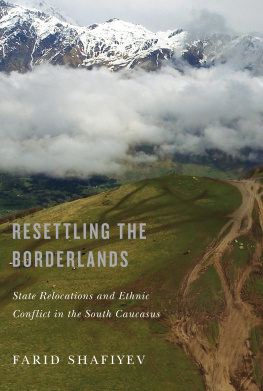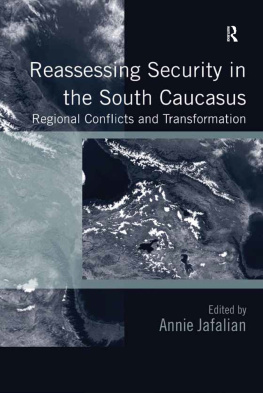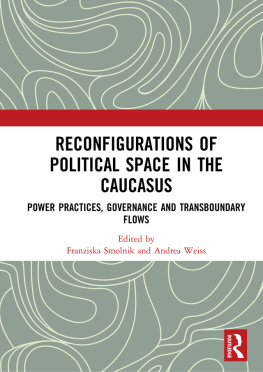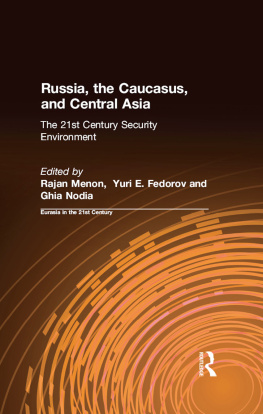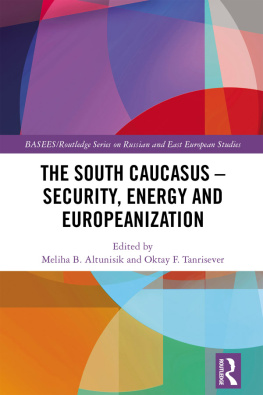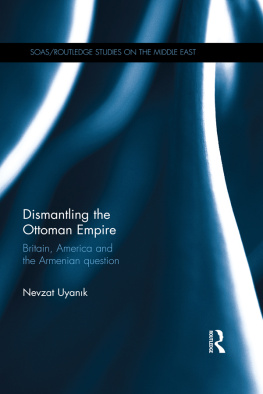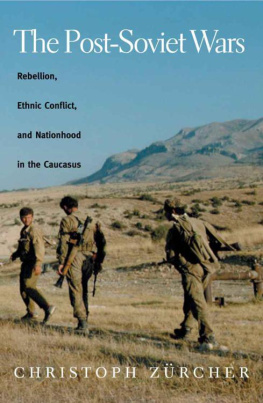The Northwest Caucasus
This is the first book to present a comprehensive history of the Northwest Caucasus. Based on extensive research, it describes the peoples of the Northwest Caucasus, which have a significantly different ethnic makeup and history than the Northeast (Chechnia and Daghestan). The book examines their struggles for survival against repeated invasions and their ultimate defeat at the hands of the Russians. It explores inter-ethnic relations and demographic changes that have occurred in the region over time with a particular focus on the nineteenth, twentieth, and twenty-first centuries, incorporating recently published archival materials concerning the deportation of the Abazas, Circassians, and Ubykhs to the Ottoman Empire by the Russians, which is treated as the first act of ethnic cleansing in modern history. The book also closely examines the struggles the Northwest Caucasus peoples continue to undergo in the post-Soviet era, facing pressures from organized crime, religious extremism, and a federal government that is unresponsive to their needs. It emphasizes the strategic importance of the region, lying on the northeastern shore of the Black Sea directly on the border between the Christian and Muslim worlds. Overall, it will be of interest to scholars of Russian history and politics, Caucasus and Central Asian studies, genocide studies, international relations and conflict studies.
Walter Richmond is Assistant Professor of Russian Studies at Occidental College, Los Angeles, US. His research interests include Islamic movements in the former Soviet Union, ethnopolitics in the North Caucasus and the politics of oil in the Caspian Basin.
Central Asian studies series
- Mongolia Today
Science, culture, environment and development
Edited by Dendevin Badarch andRaymond A. Zilinskas
- Turkestan and the Fate of the Russian Empire
Daniel Brower
- Church of the East
A concise history
Wilhelm Baum and Dietmar W. Winkler
- Pre-Tsarist and Tsarist Central Asia
Communal commitment and political order in change
Paul Georg Geiss
- Russias Protectorates in Central Asia
Bukhara and Khiva, 18651924
Seymour Becker
- Russian Culture in Uzbekistan
One language in the middle of nowhere
David MacFadyen
- Everyday Islam in Post-Soviet Central Asia
Maria Elisabeth Louw
- Kazakhstan
Ethnicity, language and power
Bhavna Dave
- Ethno-Nationalism, Islam and the State in the Caucasus
Post-Soviet disorder
Edited by Moshe Gammer
- Humanitarian Aid in Post-Soviet Countries
An anthropological perspective
Latitia Atlani-Duault
- Muslim-Christian Relations in Central Asia
A. Christian van Gorder
- The Northwest Caucasus
Past, present, future
Walter Richmond
The Northwest Caucasus
Past, present, future
Walter Richmond

First published 2008
by Routledge
2 Park Square, Milton Park, Abingdon, Oxon OX14 4RN
Simultaneously published in the USA and Canada
by Routledge
270 Madison Ave, New York, NY 10016
Routledge is an imprint of the Taylor & Francis Group, an informa business
This edition published in the Taylor & Francis e-Library, 2008.
To purchase your own copy of this or any of Taylor & Francis or Routledges collection of thousands of eBooks please go to www.eBookstore.tandf.co.uk.
2008 Walter Richmond
All rights reserved. No part of this book may be reprinted or reproduced or utilized in any form or by any electronic, mechanical, or other means, now known or hereafter invented, including photocopying and recording, or in any information storage or retrieval system, without permission in writing from the publishers.
British Library Cataloguing in Publication Data
A catalogue record for this book is available from the British Library
Library of Congress Cataloging in Publication Data
A catalog record for this book has been requested
ISBN 0-203-89436-7 Master e-book ISBN
ISBN10: 0-415-77615-5 (hbk)
ISBN10: 0-203-89436-7 (ebk)
ISBN13: 978-0-415-77615-8 (hbk)
ISBN13: 978-0-203-89436-1 (ebk)
Illustrations
Figures
The modern North Caucasus region, including the Northwest Caucasus Republics of Adygeia, Karachaevo-Cherkessia, and Kabardino-Balkaria
The Northwest Caucasus between the sixth and tenth centuries
Locations of Northwest Caucasus tribes prior to 1800
Pse Zhyg, the Circassian Tree of Life. Monument to the Circassian victims of the Caucasus War, Nalchik
The Northwest Caucasus, 180160
Location of the remaining Circassians in the Northwest Caucasus, 2007
Tables
Circassians remaining in the Northwest Caucasus, 1882
Abazas remaining in the Northwest Caucasus, 1883
Demographic changes in the Northwest Caucasus, 183582
Demographics of Kabardino-Balkaria, 1989
Foreword
For those of us who study the Caucasus there is often present in our minds, no matter what part we focus upon, an abiding sorrow at the turmoil and suffering that have afflicted this region. Even the public in the West can appreciate these feelings in so far as most are aware of the two recent Russo-Chechen wars, the first conducted under the late Boris Yeltsin and the second under Vladimir Putin. Some may even be aware of the wholesale deportations that swept the region during World War II under the direction of Josef Stalin, born Dugashvili, himself from the Caucasus and of Ossetian and Georgian extraction. A few lay people may also be aware of romanticized accounts of the nineteenth-century resistance to Tsarist expansion mounted by the Daghestanis and Chechens under Imam Shamil. Only professionals, however, seem to be aware of the ferocious war that swept through the Northwest region of the Caucasus at roughly the same time as Shamils resistance in the Northeast, and which ended with the defeat and ethnic cleansing of virtually all of the Circassians and their kin, the Ubykhs, Abkhazians, and Abazas, so that today only remnants of these once numerous peoples survive as divided entities in their former homelands, while the vast majority persist with neither political nor cultural coherence as minorities in Turkey and the Middle East.
Dr. Richmond is the first scholar to examine the history of the Northwest Caucasus in depth through an exhaustive study of virtually all the Russian sources and accounts. He has been able to take our vision of this region and its peoples back to remote antiquity. What he shows is a vista of stress and privation afflicting the peoples of the Northwest Caucasus from a remote period. The present plight of these peoples takes on an aspect of the incredible, not because of any issue of veracity, but because their sheer survival in any form at all down to the present day seems astounding given what Dr. Richmond shows us of their past. What emerges from his work is a detailed account of a group of small, distinct peoples subject to the ambitions and machinations of more powerful neighbors, while also, especially in the case of the Circassians and their kin, suffering from intense and multi-dimensional internal stresses, social, cultural, and economic. He shows clearly that, at times, this internal turmoil prevented the emergence of states or state-like entities in the region and seriously compromised any efforts at resistance to external forces. At other times, it is evident that the larger actors, chiefly Russia and the Ottoman Empire, used the Northwest Caucasus as a region for testing the mettle and resolve of one another, without any regard whatsoever for the needs or hopes of the local peoples.



